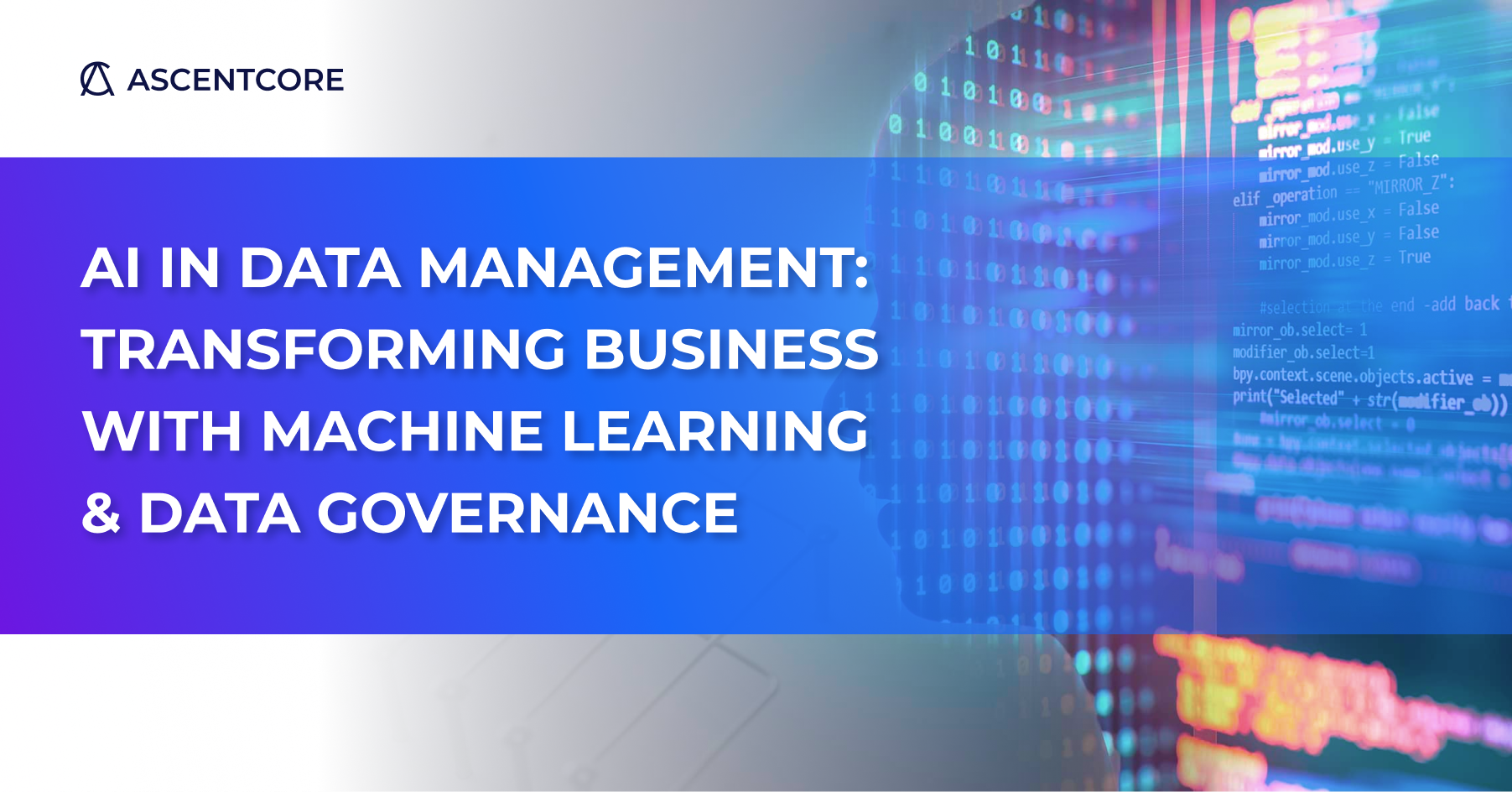In today’s digital landscape, businesses constantly seek ways to strategically harness large volumes of data. Fortunately, the critical role of AI in data management improves data quality and ensures effective data governance. It does this by leveraging key techniques like machine learning, neural networks, and natural language processing to generate insights and drive decision-making.
Data Quality: The Foundation of Data-Driven Success
Data quality is the backbone of any data-driven strategy. If the data used is inaccurate, incomplete, or inconsistent, the resulting insights and decisions can be severely compromised. Implementing AI in data management plays a critical role in improving and maintaining data quality in several ways:
- Real-time monitoring: Machine learning models can continuously monitor incoming data streams for anomalies or quality issues, flagging potential problems before they impact decision-making.
- Data cleansing: AI algorithms can automatically detect and correct errors, inconsistencies, or duplications in large datasets. This reduces manual intervention and ensures a cleaner, more reliable dataset.
- Data integration: AI systems help merge data from multiple sources while ensuring consistency across different formats and structures, improving overall data reliability.
Data Governance: Ensuring Compliance and Integrity
With the increasing complexity and volume of data, effective data governance – the policies, processes, and standards that ensure data is used responsibly and in compliance with regulatory requirements – has become crucial. Here are a few ways that AI is transforming data governance:
- Automation of governance processes: AI can automate routine governance tasks, such as data classification, auditing, and access control, making it easier to manage compliance at scale.
- Enhanced security: AI can detect and respond to potential security breaches or unauthorized access, ensuring that sensitive data is protected and in compliance with privacy laws such as the General Data Protection Regulation (GDPR) and the California Consumer Privacy Act (CCPA).
- Data lineage tracking: AI-powered tools can track the entire data lifecycle—from creation to consumption—ensuring transparency and accountability.
Machine learning: Driving predictive and prescriptive analytics
At the heart of AI’s role in data-driven strategies is machine learning (ML), a subset of AI that allows systems to learn from data and improve over time without explicit programming. ML models are used extensively for both predictive and prescriptive analytics, enabling businesses to:
- Optimize processes: ML can identify inefficiencies in business operations and suggest improvements, such as improving supply chains or marketing campaigns.
- Personalization: Machine learning enables hyper-personalization in industries such as retail, healthcare, and entertainment by analyzing individual customer preferences and delivering tailored experiences – a must in today’s crowded marketplace.
- Predict future trends: By analyzing historical data, machine learning algorithms can predict future outcomes, helping businesses anticipate market changes, customer behaviors, or operational challenges.
Neural Networks: Unleashing the Power of Deep Learning
Neural networks, a subset of machine learning inspired by the human brain’s structure, are particularly effective in handling complex, high-dimensional data. These networks, especially deep learning models, are most effective in areas such as large-scale data analysis, speech processing, and image recognition. Neural networks can contribute to:
- Automating decision-making: With the ability to process and learn from massive datasets, neural networks can make decisions or recommendations autonomously, helping businesses automate complex tasks such as fraud detection or dynamic pricing.
- Improving customer interactions: Neural networks enable smarter chatbots and virtual assistants that can interact with customers in a natural, human-like manner, enhancing the customer experience.
- Advanced pattern recognition: Neural networks can uncover hidden patterns and correlations in vast amounts of unstructured data, such as customer interactions, social media activity, or sensor data.
Natural Language Processing: Unlocking the Value of Unstructured Data
Unstructured data, such as emails, social media posts, and customer reviews, represents a vast and often underutilized resource for businesses. NLP is a branch of AI that enables machines to understand, interpret, and respond to human language and can play a critical role in data-driven strategies by:
- Text mining and topic modeling: By processing large volumes of text, NLP can identify recurring themes, trends, or concerns, providing valuable insights into customer preferences or market developments.
- Sentiment analysis: NLP tools can analyze data such as customer feedback and social media mentions to gauge public sentiment about a brand or product, allowing businesses to adjust strategies in real time.
- Automated communication: NLP-powered chatbots and virtual agents can handle routine customer inquiries, freeing up human agents to focus on more complex tasks while ensuring consistent communication.
AI in Data Management: The Key to Innovation
AI is at the forefront of modern data-driven strategies, offering unparalleled opportunities to enhance data quality, enforce governance, and derive actionable insights through advanced technologies. As organizations continue to navigate the challenges of big data, the integration of AI-driven technologies is not just beneficial—it’s essential. By leveraging AI’s capabilities, businesses can unlock the full potential of their data, driving innovation, efficiency, and strategic decision-making in today’s data-driven world.



